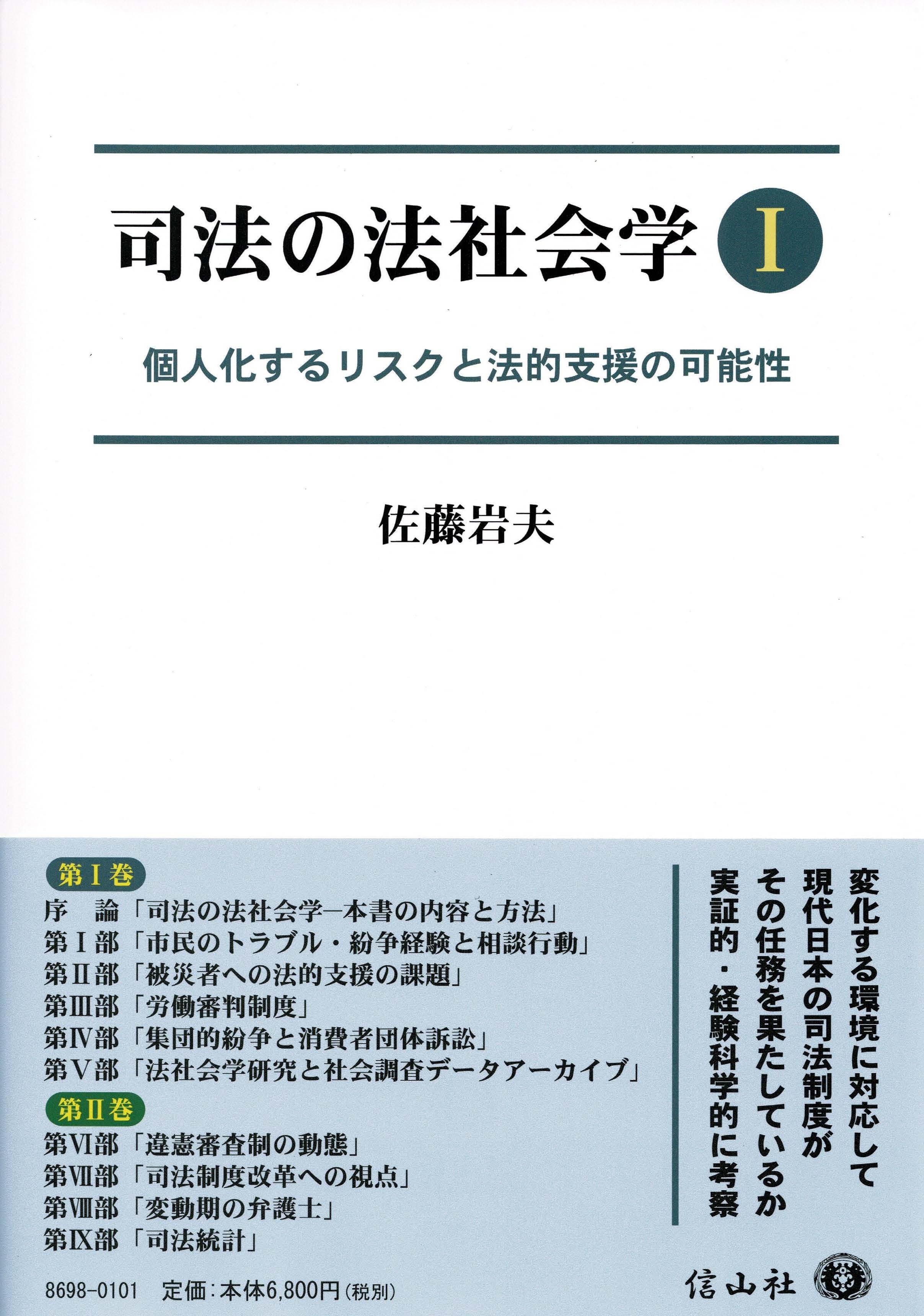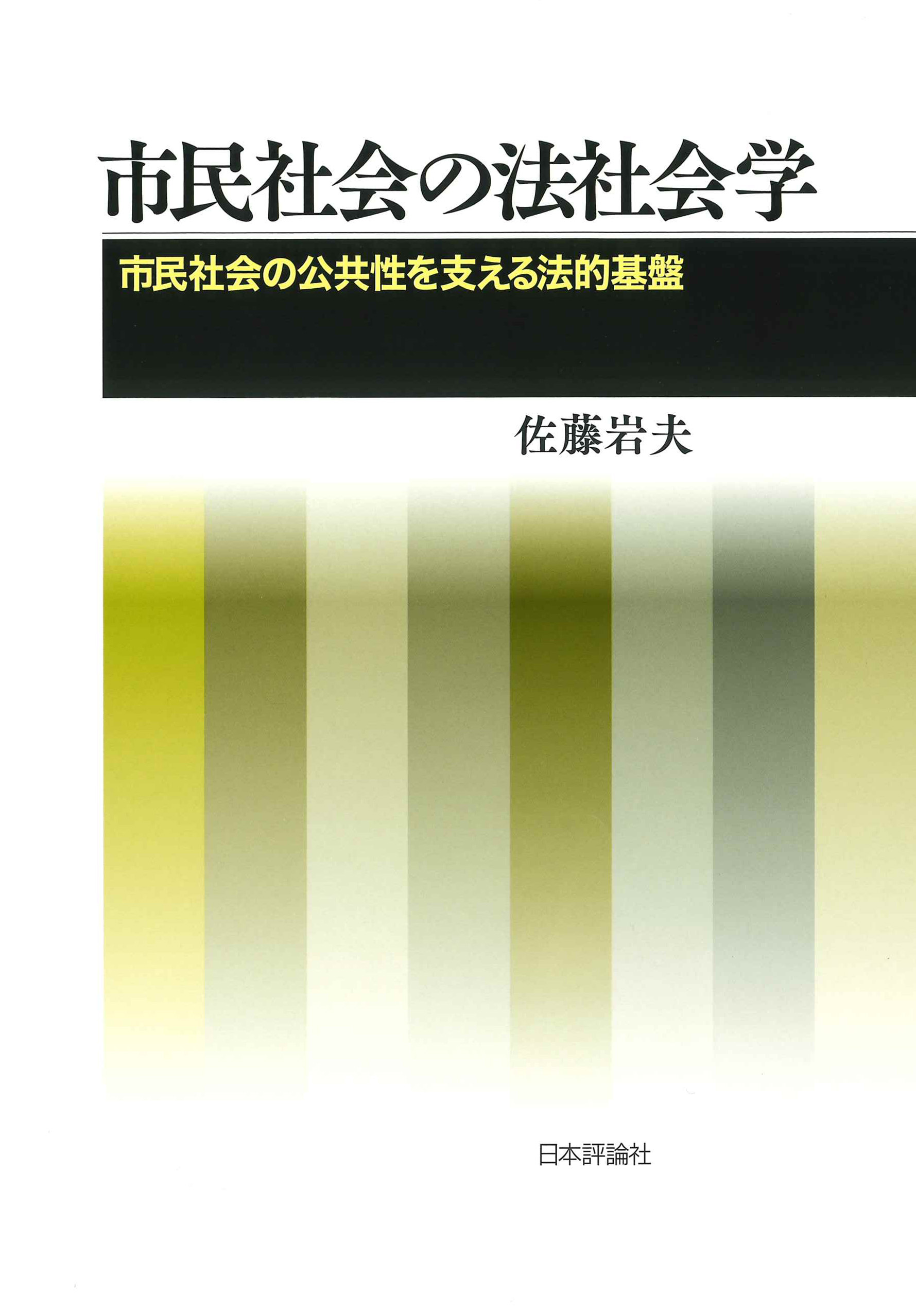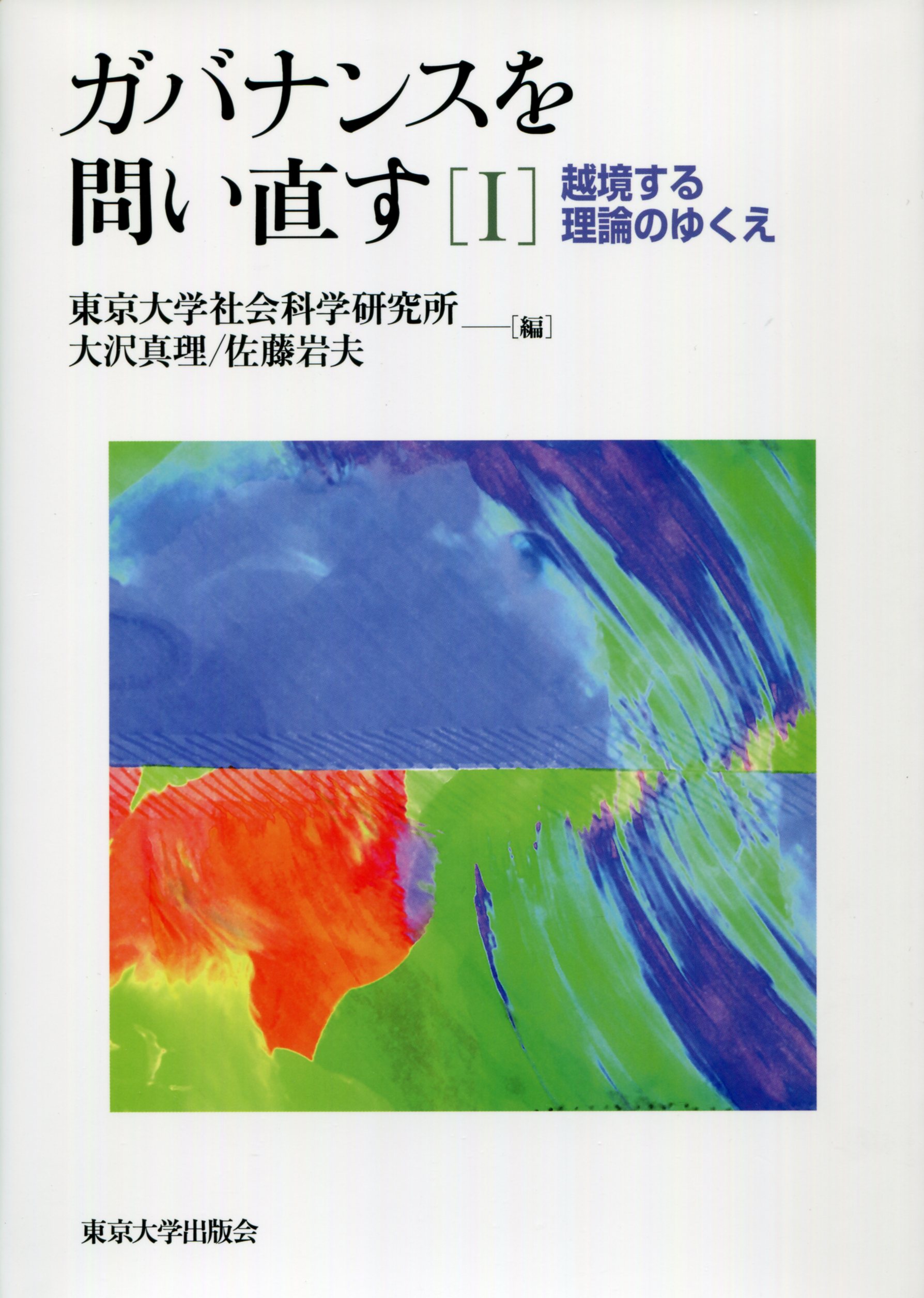
Title
Shiho no Hō-Shakai-gaku (A Socio-legal Study of the Judiciary – vol. I - Risk of Individualization and Potential of Legal Support, vol. II - Dynamics of the Judiciary in Governance)
Size
[vol. I] 304 pages, [vol. II] 320 pages, A5 format
Language
Japanese
Released
August 31, 2022
ISBN
[vol. I] 9784797286984
[vol. II] 9784797286991
Published by
Shinzansha Publisher Co., Ltd.
Book Info
See Book Availability at Library
Japanese Page
This study is an attempt to clarify the actual circumstances of the contemporary Japanese judicial system, the functions it fulfills, and the issues it is currently facing. This will be conducted from a socio-legal perspective, which involves empirical research on law.
This study consists of two volumes. The first volume contains research on people’s experiences and actions related to everyday problems and disputes, and the various systems that are established for the appropriate resolution of such problems and disputes (specifically, the comprehensive legal support system, the legal support system for disaster victims, the labor tribunal system, consumer group lawsuit systems, etc.). The second volume takes up the constitutional review system and judicial system reform from the perspective of viewing the judicial system as part of the governance system. Related to this aspect, this volume also contains research on changes in the environment, that surrounds lawyers in today’s society, and the development of the modern judicial statistics system.
One of the features of this study is that, it captures the functions and issues of the judicial system, in relation to the macro-scale characteristics of contemporary society. The first volume focuses on the progress of individualization in this society. This phenomenon has positive aspects such as the expansion of individual freedom and diversity, but also entails less positive outcomes, as people are forced to respond as individuals to the risks that inevitably arise in their daily lives. In this respect, it is important to prepare the social system to help people cope with risks. The first volume discusses the judicial system from the perspective of social support for such individualization of risk. The second volume discusses issues such as the constitutional review system, judicial system reform, and lawyers in changing times, while keeping in mind the trends Japan’s society and economy are facing, such as globalization and modern governance reforms. Although not directly dealing with contemporary Japan, the research on the development of modern judicial statistics in 19th-century Europe in the second volume, is also based on a macro-level interest in the new relationship between knowledge and society, and the transformation of ideal means of governance in 19th-century Europe.
The other feature of this book is that, empirical analyses on each subject were accumulated based on the above-mentioned concerns by using the methods of social survey research and comparative socio-legal studies. Analyses for the social survey research were conducted using not only the data from various large-scale surveys for which I was a core member in planning and implementation, but also data from surveys by the Japan Legal Support Center (Houterasu) and the Japan Federation of Bar Associations, in which I cooperated. I have also been interested in the significance of the comparative method on social scientific research in law and conducted research on these aspects; the results of this research are also used in this study. I believe that through these empirical analyses, this study has been able to present many important findings and provide valuable suggestions for the future of judicial policy making in Japan.
The judicial system as a governance system, is closely related not only to various fields of jurisprudence, but also to political science and public administration. It is also connected to various fields of sociology and social welfare studies, as is shown by the research interest in contemporary society’ individualization. It is also expressed by the recently developed practice of“legal social work”, where legal professionals collaborate with the welfare practitioners. It is my greatest hope that this study, which discusses the judicial system from the perspective of socio-legal studies, stimulates the interests of readers in their respective fields.
(Written by SATO Iwao, Professor, Institute of Social Science / 2022)



 Find a book
Find a book




